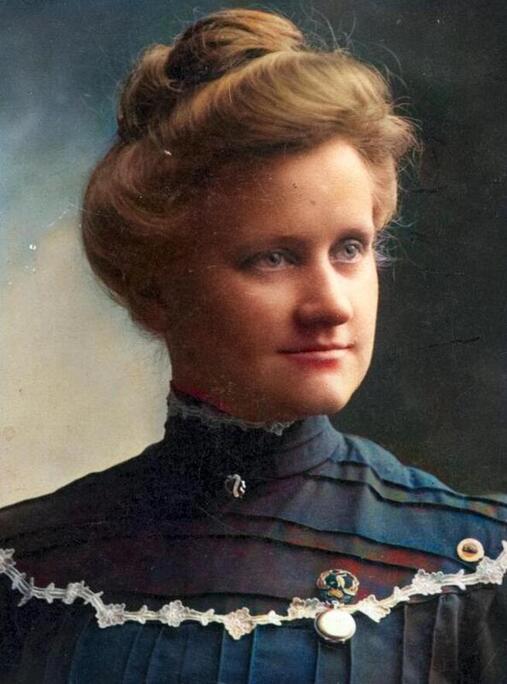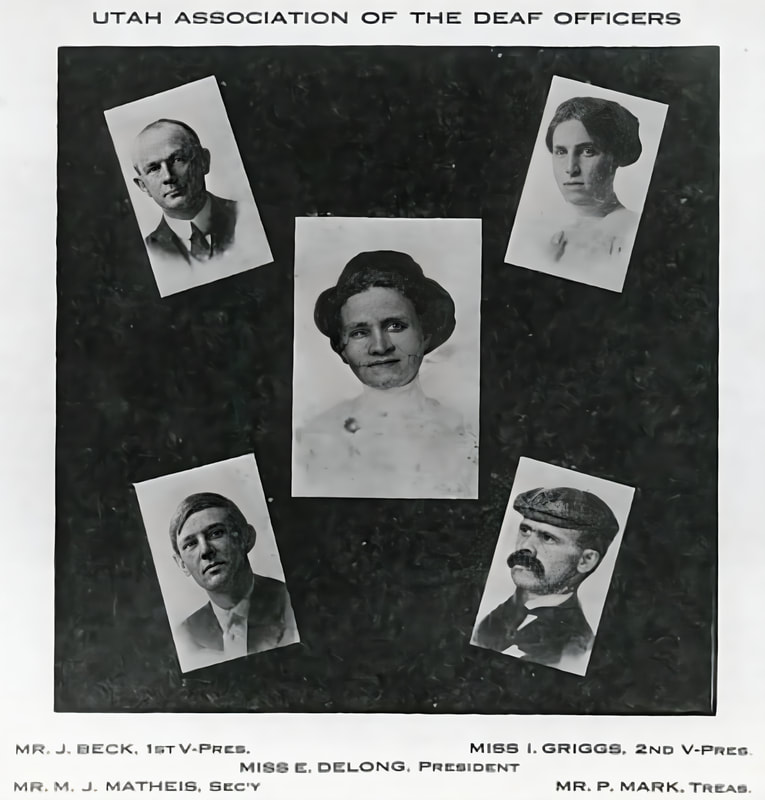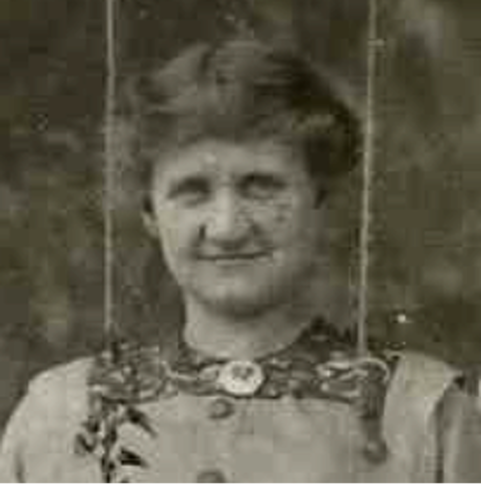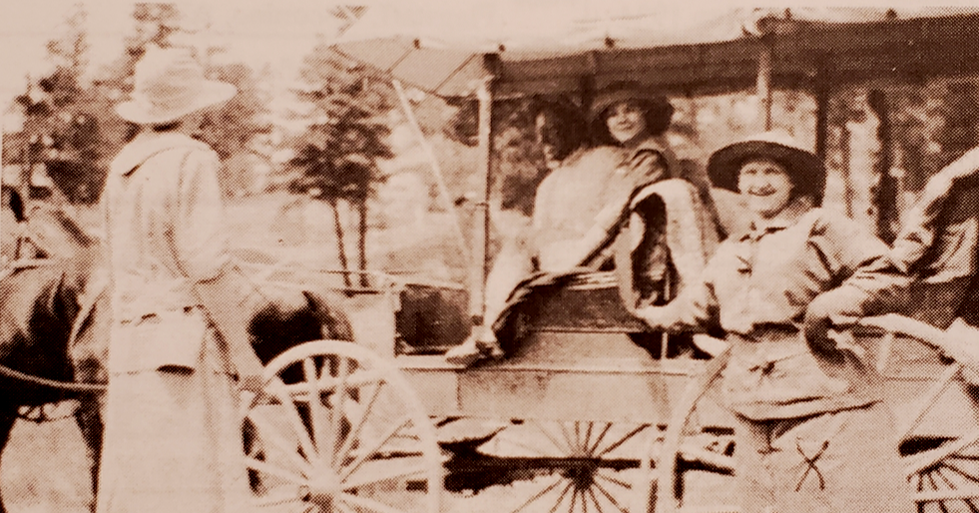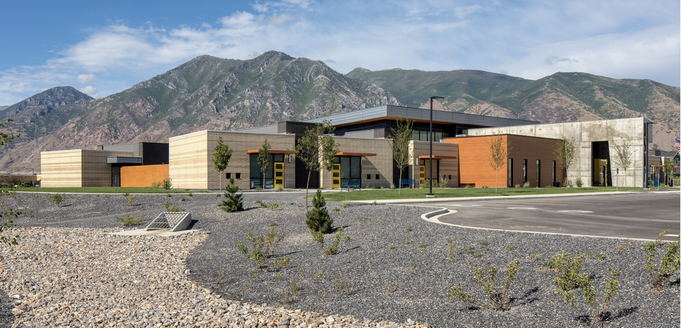History of the
Elizabeth DeLong School of the Deaf
Written by Jodi Becker Kinner
Published in 2019
Updated in 2024
Published in 2019
Updated in 2024
Author's Note
I'd like to express my heartfelt gratitude to Michelle Tanner, the Associate Superintendent of the Utah School for the Deaf, for contacting me to gather information and prepare a biography for Elizabeth DeLong. Nathan Harrison, your dedication and effort in compiling the necessary materials to propose naming the Utah School for the Deaf in honor of Elizabeth DeLong are commendable. Anne Leahy and Doug Stringham, our significant contributions as Utah Deaf History researchers have greatly expanded our knowledge about her and for Anne for giving me a copy of Elizabeth DeLong's biography from the Church History Library of The Church of Jesus Christ of Latter-day Saints, which inspired me to write a biography of Elizabeth DeLong for the history website and the Better Days 2020 website, the Utah's Women History. Each of you has played a special part in this project, and I am incredibly grateful for your contributions.
Elizabeth DeLong, my role model and a woman I deeply admire, is the subject of my contribution to the Better Days 2020 website, which celebrates Utah and national suffrage milestones in 2020. It's a platform that popularizes the history of women's rights and women's first votes, shaping current and future conversations about women, including Elizabeth DeLong. I am honored to have her as the first Deaf female president of the Utah Association of the Deaf in 1909. She also has achieved numerous firsts and deserves a legacy for her service to the Utah Deaf community.
Thank you!
Jodi Becker Kinner
Elizabeth DeLong, my role model and a woman I deeply admire, is the subject of my contribution to the Better Days 2020 website, which celebrates Utah and national suffrage milestones in 2020. It's a platform that popularizes the history of women's rights and women's first votes, shaping current and future conversations about women, including Elizabeth DeLong. I am honored to have her as the first Deaf female president of the Utah Association of the Deaf in 1909. She also has achieved numerous firsts and deserves a legacy for her service to the Utah Deaf community.
Thank you!
Jodi Becker Kinner
History of School Naming
The Utah Schools for the Deaf and the Blind (USDB) invited suggestions from the Utah Deaf community to name their new Deaf school, a beacon of our community, located on the USDB campus in Springville, Utah. The Associate Superintendent, Michelle Tanner, received several nominations, the most popular being Elizabeth DeLong. Elizabeth, a trailblazer, graduated from the Utah School for the Deaf in 1897 and then went on to graduate from Gallaudet College in 1902. She was a teacher at her alma mater and the first Deaf female president of the Utah Association of the Deaf. For the Better Days 2020 website, I wrote her biography, which deeply moved Nathan Harrison, the Assistant Director of the Jean Massieu School of the Deaf at the time. He proposed naming the school in her honor. USDB Administrators, the Utah State Board of Education, and the USDB Advisory Council unanimously approved this proposal (Michelle Tanner, personal communication, February 8, 2024).
After receiving approval from the Utah State Board of Education and the USDB Advisory Council, the Utah School for the Deaf announced the opening of a new Deaf school in Springville, Utah, in October 2019. The school is named the "Elizabeth DeLong School of the Deaf," in honor of Elizabeth DeLong, also known as "Libbie." The school opened on January 6, 2020, with a new name and identity. This is a wonderful way to carry on her legacy. The early Utah suffrage effort inspired Libbie to pursue her academic, political, and spiritual goals. She achieved several significant milestones, including becoming the first female president of the Utah Association of the Deaf, making her a trailblazer. The new school, named in her honor, is a fitting tribute to her legacy, as she smiles down on us from across the rainbow.
The Elizabeth DeLong Award
I am incredibly grateful to express my appreciation to Kim Lucas, President of the Utah Association of the Deaf, for presenting me with the prestigious Elizabeth DeLong Award, the first award of its kind, at the 2024 Utah Association of the Deaf conference. This award is truly special to me, as it bears the name of the extraordinary woman who inspired many with her dedication to the Utah Deaf community. This award also holds a special place in my heart, and I am honored to have received it. I proudly display it on my desk as a constant reminder of the profound advocacy and contributions the Utah Association of the Deaf has made to our Utah Deaf community. I sincerely thank Kim Lucas and the UAD officers for their tireless efforts and commitment to our community. Thank you!
A Short Biography of Elizabeth DeLong
The Utah Deaf community proudly honors Elizabeth DeLong, also known as "Libbie," for her many accomplishments. Despite the early challenges of losing her hearing at the age of five due to scarlet fever and smallpox, she demonstrated remarkable perseverance. At the age of 14, she enrolled at the Utah School for the Deaf and learned American Sign Language there, becoming a prominent figure in the Utah Deaf community.
Libbie was an outstanding and inspirational trailblazer who made significant contributions to the Utah Deaf community. She accomplished many firsts in Utah and broke down numerous barriers, including becoming the first female president of the Utah Association of the Deaf. Her exceptional leadership and advocacy for the Deaf community in Utah have left an indelible mark, shaping the state's Deaf rights and representation landscape. We are privileged to have had her as our leader and advocate; her legacy will continue to inspire future generations.
Take a look at the following list of Libbie's firsts.
Libbie's support for women's suffrage, as well as her significant contributions to the Utah Deaf community and the women's rights movement, continue to serve as inspiration today, underscoring the enduring impact of her work.
Libbie was an outstanding and inspirational trailblazer who made significant contributions to the Utah Deaf community. She accomplished many firsts in Utah and broke down numerous barriers, including becoming the first female president of the Utah Association of the Deaf. Her exceptional leadership and advocacy for the Deaf community in Utah have left an indelible mark, shaping the state's Deaf rights and representation landscape. We are privileged to have had her as our leader and advocate; her legacy will continue to inspire future generations.
Take a look at the following list of Libbie's firsts.
- Libbie, a trailblazer, made history in 1897 by becoming the first Deaf female student from the Utah School for the Deaf to attend Gallaudet College. This was a significant milestone, paving the way for future Deaf students. She graduated from Gallaudet College in 1902, where she became the first Deaf woman to graduate with a bachelor's degree in Utah. Additionally, she was the first in her family to earn a college education in 1902.
- After returning to Ogden from Washington, DC, on September 3, 1902, she became the first Deaf woman to have a college education, and she began teaching at her alma mater, Utah School for the Deaf, where she taught for fifteen years. Furthermore, she became the first Deaf female superintendent of the Sunday School at the Ogden Branch for the Deaf.
- Most important of all, Libbie made history by defeating two male Deaf candidates, in 1909, becoming the first female Deaf president of the Utah Association of the Deaf, an advocacy organization for accessibility and civil rights of the Utah Deaf community. Additionally, she became the first female Deaf president of a state chapter association of the National Association of the Deaf in the United States. Her victory over two Deaf male candidates in the election, despite the societal barriers, was a significant achievement. Women did not have the right to vote until the 19th Amendment was ratified in 1920, and the National Association of the Deaf also did not allow Deaf women members to vote in their elections until 1964. Libbie's remarkable accomplishment was a testament to her perseverance, likely inspired by her involvement in Gallaudet's O.W.L.S. presidential election in 1901, a secret society for women now known as Phi Kappa Zeta. Her active participation in Utah's early suffrage movement also fueled her educational, political, and spiritual aspirations. Libbie served as president of the Utah Association of the Deaf from 1909 to 1915, delivering a speech advocating for women's suffrage at the end of her second term as president. This speech highlighted her commitment to advocating for women's rights and her role as a trailblazer for Deaf women in leadership positions.
Libbie's support for women's suffrage, as well as her significant contributions to the Utah Deaf community and the women's rights movement, continue to serve as inspiration today, underscoring the enduring impact of her work.
To learn more about Elizabeth DeLong,
click on the links below
click on the links below
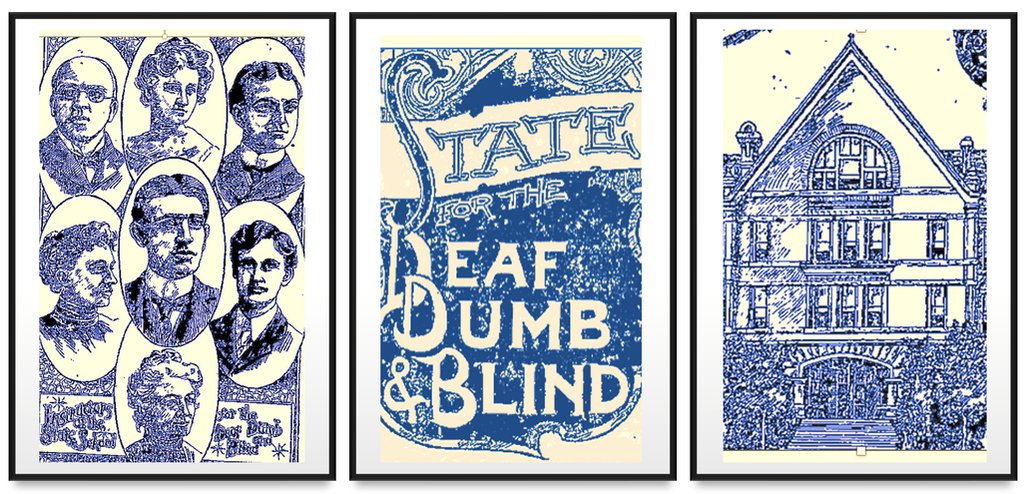
The Utah School for the Deaf, Dumb, and Blind, as it was called back then, was featured in the Ogden Daily Standard on December 20, 1902. The staff members were, from top to bottom, L-R: Albert Talage, Catherine King, Elizabeth DeLong, Superintendent Frank M. Driggs (Center), Sarah Whalen, E.S. Henne, and Max W. Woodbury
